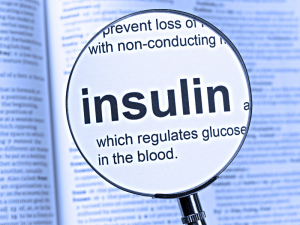Hormone Imbalance in Women
If you have PCOS, Hashimoto’s, or another hypothyroid condition, you aren’t alone if you have tried, and failed to lose weight. Hey, you aren’t even on your own if despite your best efforts, you’ve found you’ve gained weight!
Struggling to shift unwanted pounds and weight gain are two common side effects of autoimmune diseases because they affect your thyroid gland. This creates a hormone imbalance in women which can impact their metabolism, leading to insulin resistance. This itself can then cause other symptoms and lead to a decline in your overall wellbeing.
If you think of it as a chain reaction, it looks a little something like this:
Insulin resistance > inflammation > food intolerances > adrenal fatigue (cortisol issues)
You might be wondering how you can tackle these hormonal imbalances, get control of your health, and lose weight. Well, I’m going to tell you!
Insulin resistance

Now, I need to get a little science-y first to explain what is happening inside your body. Insulin is a hormone made by the pancreas. It helps glucose enter your cells so that it can be used for energy. Insulin resistance is when the cells in your muscles, fat, and liver don’t respond well to insulin and struggle to take glucose from your blood. This causes your pancreas to make more insulin to try and help. If your cells become too resistant to insulin, it results in elevated blood glucose levels.
This excess glucose has to be stored somewhere so your body converts it into fat. The result? Weight gain! However, you can use food to help reverse insulin resistance and reduce these excess fat stores.
The first line of action is adopting a low-carb diet. Simply eating less and working out harder isn’t going to work in combating hormone imbalances. Instead, pack your meals with lean sources of protein, fruits, vegetables, whole grains, and healthy fats.
Inflammation and food intolerances

Chronic insulin resistance leads to inflammation which can then lead to food intolerances, most commonly dairy, gluten, and eggs. Internal inflammation can also lead to GI distress, body aches, less energy, and bloating.
If you have PCOS, Hashimoto’s disease, or another hypothyroid condition, you should steer clear from gluten and dairy anyway.
Gluten consumption can cause an inflammatory response and cause other symptoms to flare. This is because the protein structure of gluten closely resembles that of the thyroid and so your body signals an attack on your thyroid gland.
You should avoid dairy as it contains a hormone called insulin-like growth factor (IGF-I) and can also have high levels of sugar. Studies show that IGF-1 mimics the structure and role of insulin in the body and can contribute to insulin resistance. For those with a thyroid imbalance, dairy can also stop your body from absorbing nutrients and medication properly.
Eggs are a great source of protein, iodine, and selenium. But if you suffer from a thyroid imbalance like Hashimoto’s, there is a stronger likelihood that you will have an intolerance to them. This intolerance can cause inflammation, so I recommend that you avoid eggs, at least initially. This will give your gut a chance to reset and for any inflammation to decrease.
Those with PCOS are less likely to have an egg intolerance. Studies have even shown that eggs can be anti-inflammatory in these cases and improve symptoms.
Hormone Imbalance Symptoms in Women
Adrenal fatigue

If you find it hard to wake up, or are tired all day yet can’t seem to sleep at night, you might be suffering from adrenal fatigue.
Adrenal fatigue can set in after having insulin resistance and inflammation for a long period. This is due to the response to chronic stress.
The adrenals are two small glands located on top of the kidneys. They produce several hormones, including cortisol, which is the primary stress hormone. When our body is under stress, the adrenal glands release short bursts of cortisol into the bloodstream. Cortisol increases glucose in the bloodstream.
It is suggested that after dealing with high levels of stress for a prolonged period, the adrenals can become depleted, causing the body to go into a low cortisol state. As a result, other symptoms of adrenal depletion can occur. These include brain fog, low mood, a lack of energy, sweet and salty cravings, and a reliance on stimulants like caffeine.
It is not uncommon after a stressful or traumatic event (e.g., pregnancy, the death of a loved one, an accident, or a high-stress job), to receive a thyroid condition diagnosis. It’s easy to see why when you consider everything that is going on inside your body and how your hormones are being impacted!
Just like with insulin resistance and inflammation, you can tackle adrenal fatigue and cortisol issues if you focus on feeding your body with the right foods. Opt for protein-rich, meat sources, healthy fats, and non-starchy vegetables. Avoid processed foods and those high in refined sugar.
Get those hormones in check and lose weight with Keto Girl coaching
I talk to so many people who are fed up with feeling sluggish and who find their lack of weight loss progress disheartening. But it doesn’t have to stay that way.
With my proven Keto Girl Method, I’ll give you all the tools you need to eat mindfully, optimize your metabolism, balance your hormones, and improve your PCOS, Hashimoto’s, or hypothyroid symptoms.
There will be no need to count calories and I promise you, your meals will be fulfilling, fun, and still include the foods you love. Join Today!






